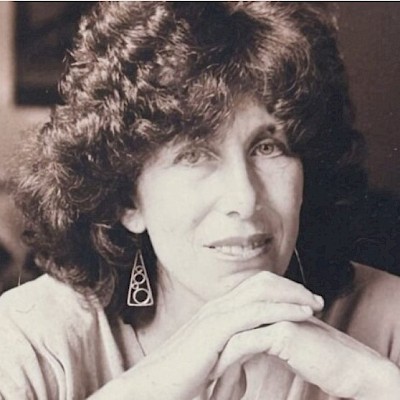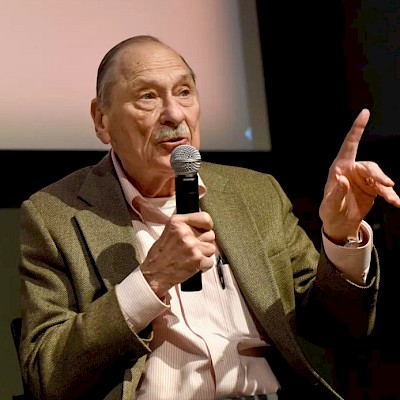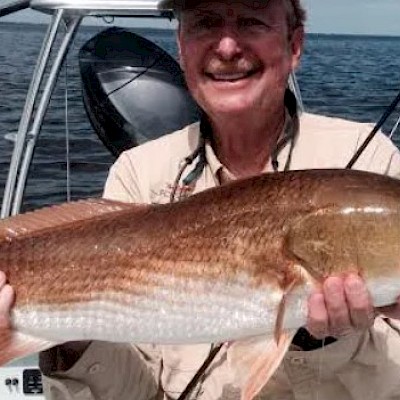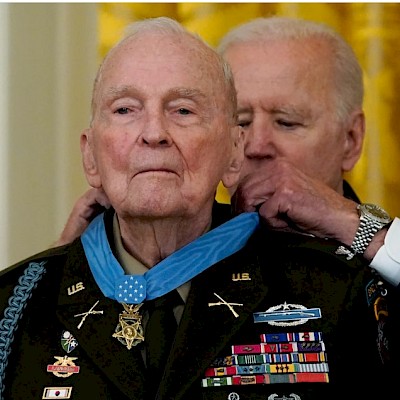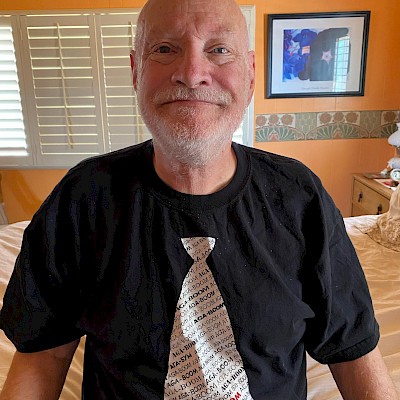
Charles Showalter II
You entered HaShem's Kingdom peacefully May 14, 2024 with Daniel and me at your side. Born August 20, 1946 in Berea, OH, you were the eldest son of the late Charles W. Showalter, scientist with the Atomic Energy Commission, and Genevieve (Bullock) Showalter, mother, secretary and successful entrepreneur ("Gene's Costumes"). In your youth, you lived in many places, but considered yourself a "southern boy" from Oak Ridge, TN. Armed with a BA in history From Lehigh University and two masters degrees from the University of Pittsburgh, you set out to live your life. In addition to your parents, you were predeceased by former first wife Barbara (Remen) Showalter. You are survived by spouse Paula D'Auria-Showalter and Spinel, our black lab mix (Pioneertown, CA); brothers Bradley A. (Nancy) Showalter (Phoenix, AZ) and Jonathan L. (Loris Gielczyk) Showalter (Santa Cruz, CA); sons Charles W. Showalter III (Pittsburgh, PA) and Daniel J. (Patricia Hredzak) Showalter (Verona, PA); grandchildren Heather, Gwendolyn ("Winnie"), "Jack Jack" and several nieces. Interment will take place at the Tower of David, Forest Lawn Memorial Park, Cathedral City, CA. Memorial contributions may be made to the Parkinson's Resource Organization (parkinsonsresource.org) and to the American Heart Association.
You were employed, among other positions, as an assistant buyer for Gimbel's Pittsburgh (furniture and bedding), an educator (Pittsburgh yeshiva) and as an alcohol/drug therapist (Aleutian Tribes Corp. in Cold Bay, AK). Strongly feeling the need to help the disadvantaged and disenfranchised, you actively volunteered assisting the Pittsburgh homeless and worked as a trauma counselor. A member of the Morongo Basin Democratic Club, the Morongo Basin CERT (Community Emergency Response Team) and the Morongo Basin Sexual Assault Services, you dedicated your life to giving back. You enjoyed contributing as a volunteer educator for Desert Oasis Health Care, teaching the "Healthier Living Workshop" and "A Matter of Balance" classes with your wife. "Well, hello there!" Who could resist that effervescent personality and smile as you strolled into the classroom sporting your red straw fedora and carrying your book bag? Into politics, you proudly recounted being beaten by Chicago police while demonstrating during the 1968 Democratic convention. Faith was extremely important to you as a member of Chabad of Rancho Mirage and Temple Isaiah Palm Springs.
A devoted follower of Bill and Dr. Bob, you were fond of saying, "The only meeting you need to attend is the one you don't want to." Being of service to others was paramount in your life. You established the Yucca Valley "House of Hope", a sober living house for women, and a housecleaning service, "Aaprons, the fine arts of housewifery", which you later paid it forward to those in recovery. A voracious reader especially of Civil War and WW II history, you visited all of the eastern and southern Civil War battlefields with Danny, enjoyed all types of music (playing the flute, piccolo and recorder) and were an eclectic art collector. You enthusiastically waved the "Terrible Towel" at every chance for the Pittsburgh Steelers, your favorite football team in good and bad years. You were witty, intelligent and creative. You designed greeting cards, were always writing and researching topics of interest and constantly curious about the world. More than once you only half-jokingly declared that anyone would want you on their Trivial Pursuit team. We met in the fall of 1997 through a tiny " dwm seeking d/swf" ad placed in a village rag. You were selling Alaska, and I was buying. We corresponded and by Pesach 1998, I traveled to Cold Bay, AK to accept your proposal. Back in PA, I sold my home and its contents, secured a position as Home Health Director for tiny native Kanakanak Hospital and moved to Dillingham, AK. On July 9, 1998 we were married by the Court. You were miffed that we married in the morning. We shared wedding cake with Yupi'k Native Americans by noon and by afternoon I returned to work! We were amateur rock hounds. While other couples had a favorite song, our favorite "rock" was labradorite.
•
Remembering Charles Showalter II
Use the form below to make your memorial contribution. PRO will send a handwritten card to the family with your tribute or message included. The information you provide enables us to apply your remembrance gift exactly as you wish.

